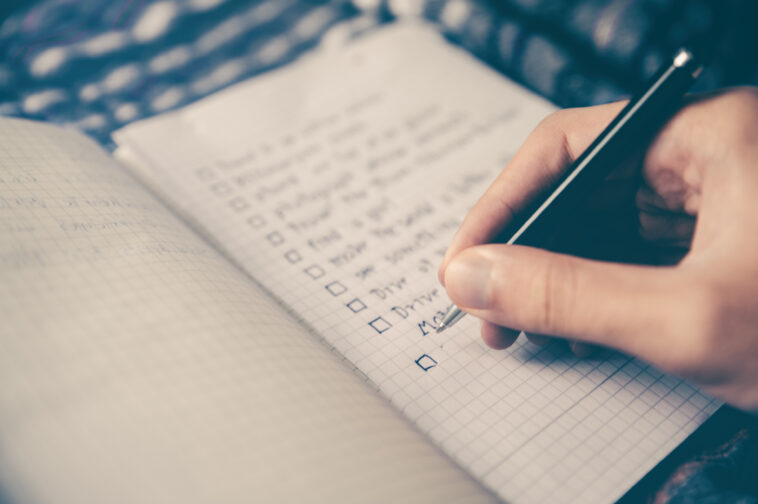Are you preparing for a job interview? You may be asked to provide a resume. And while you think that writing one is as easy as pie, the truth is that there are many subtle details you may have overlooked. Not only can these things make or break your chances of landing the job, but they can also make or break your chances of obtaining future employment.
Given the countless number of job applications you have sent out since graduating, you are probably faced with a stack of resumes brimming over the limit. But before you dig in to fill in the information requested by your prospective employer, you need to ensure that your resume is eye-catching and professional.
But don’t worry. When it comes to writing a resume, there are plenty of tips available to help you get the job done right. And while some tips apply to just about all types of resumes, there are specific rules you should consider when developing your cutting-edge resume.
To help you out, here is the checklist of what you should include in your resume.
Contact information

- Source: money.it
This section has all the information you need to get in touch with your potential employer. It includes your name, address, telephone number(s), fax number, email address, as well as a website where they can find more about you. Your name should be at the top of the page, followed by other contact details on either side of it. You can also include information on how best to contact you, for example, if you are only available at specific times. Make sure that your contact details are correct and up to date.
You should type out your contact information neatly and in the same order as you have set it out. If you have included a website, then ensure that the URL is correct.
Another vital thing to remember when filling out your contact information should be clear, concise, and easy to find. This information needs to be presentable, so use correct grammar and spelling and capital letters.
Catchy headline

- Source: flothemes.com
While your contact information is already visible, many job seekers fail to grasp a recruiter’s attention. That’s why a catchy headline is a must. It lets the recruiter know what you do and why they should give your resume a closer look. You can also use your headline to express how you feel about the job description or position offered.
Here are some tips on how to write a good headline for your resume:
Use some adjectives here. “Professional,” “skilled,” “knowledgeable” are good candidates for this part.
The headline must describe your accomplishments rather than your job description or duties. Give concrete examples that show you can perform the job better than anyone else out there.
Avoid using jargon or acronyms.
Your headline should be concise. If it exceeds two lines, make sure your resume can stand on its own without it.
Use the headline to express what you are looking for in your next career move or why you’re applying for that particular job.
Work experience
As expected, this is where you will write about all your past jobs and the work experience gained from them. To make things easier for you, make sure that each paragraph starts with an action verb or noun that describes the specific job duties you performed. Thus, you can define the responsibilities you have carried out in your previous jobs so that an employer can better understand what you do.
Aside from writing all the jobs, you have had, make sure to include any achievements, awards, and recognition you have received from those jobs and the salary you received from them. You may also want to include a description or explanation of what you learned from your previous work experience. It will help your employer understand if your skills will be helpful in their company.
Skills

The skills section will list the specific skills that are relevant to the position you are applying for. List them in order of importance, starting with your greatest skill and ending with your weakest skill. If there is no information on what they are looking for, then use skills listed in the job description of any previous jobs you have had.
It is also important to mention any special skills relevant to the job but not listed on your resume. It can be things like computer programs you are experienced in using, foreign language abilities, cultural competency skills, or related experience. Remember that the purpose of a resume is to get an interview. So make sure that these skills are relevant to the job position and indicate why you would be a good fit for the job.
Education
This is the section where you will talk about your academic qualifications. If there are any requirements related to the specific job, then state them here as well. It is also a good idea to include information on any awards or degrees that you have received. It will be an excellent opportunity to include any information that might be considered relevant by the employer.
You can also use your education to highlight your skills. As well as highlighting what you have achieved, it can tell the employer what you could achieve in the future. If you think that any skills will be helpful to them in the job, then it is best to include them. These might consist of soft skills, such as communication or interpersonal skills. This information can help make your resume more focused and show that you are prepared to do the job well.
Objective

The objective section is where you will give your reader an idea of what you want. It should include your desired position, the company you are applying to, and the date you send out the resume. A practical objective also consists of a career summary that highlights your relevant skills.
This section must be as concise as possible, as it will be the first thing a recruiter sees. If you know that your resume does not fit into the job description of the organization you are applying to, then you will need to edit it accordingly before submitting it.
Here are 5 things you need to include in your objective:
What you want – Be clear and mention precisely what you want out of a potential position.
Why do you want to work at the company – What makes someone want to work for that company? Sometimes, people mention their salary or benefits. However, they should instead focus more on the role they would play there and contribute.
When you are applying for the position – You need to mention if you are applying for immediate hire, an open job, or a future date. This way, the reader knows when to expect your application.
What skills do you possess – What do you have to offer? So many people overlook this critical section.
What experience you have – Make sure to include all of your relevant experiences and skills since an employer will find it challenging to find out on your resume alone.
References

The last thing that should appear in your resume is the section on references. If possible, get them to write their resumes so that employers can see how well-suited they are for the job described in this one.
You can provide information that gives the employer an impression of how well-suited the candidate is for that particular job. Give them some background on how they have done in past jobs. Have references address some of these questions:
What were their responsibilities?
What years were they with you?
How did the company treat s/he?
How is s/he now working?
How is the person in your opinion qualified to do this job?
It is possible to make references instead of asking them to write their resume. Some employers may not require that their employees give references, especially if the job is lower level. It also depends on what they are asking for in the resume. This interview checklist will help you in preparing an effective one.
In Conclusion…
Your resume is your marketing document. It’s the first impression you give to a potential employer, and it can make or break your chances of getting an interview. The good news? If you follow our 8-step checklist, you should be able to write a resume that reflects your skills, achievements, and work experiences.
If you need help with how to write a resume or want to get an original and well-written resume for your job application, you can always hire a resume consulting service and get the best possible results.





